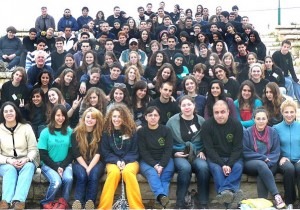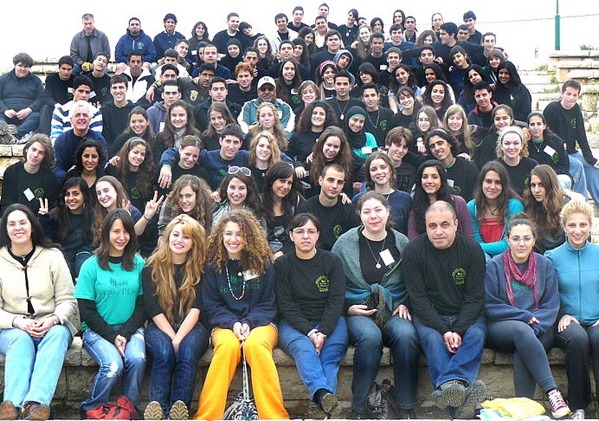My alma mater is part of a heated rivalry that extends back to the days of the Civil War (or as my friend from Mississippi recently called it, “the War of Northern Aggression”). It is so heated, in fact, that it was recently recognized by ESPN as the college basketball rivalry that best incarnates “hatred.” Browse nearly any comment thread on a message board or sports-related article devoted to either school and it doesn’t take long for it to devolve into a vitriol-laced verbal war peppered by well-worn stereotypes and thinly veiled expletives.
The animosity between these two schools and their fanbases makes for electric game atmospheres on the court, on the gridiron or in any venue, really. That’s a very good thing when fans don’t take things too far — some of my best memories from college involve big wins over our archrival—but that’s not a good thing when fans take things too far.
I’m embarrassed to admit that despite “my strong Christian faith,” I helped perpetuate the darker side of the rivalry during, and for time after, my college days. (I justified this in my mind by thinking that when Jesus said to “Love your enemies,” he couldn’t have meant that school.) My friends and I used to spit out the car window every time we drove past our rival’s town on the interstate. It seemed a fitting sort of thing to do since that town was full of “the enemy.”

Our excessive and immature zeal was relatively harmless, but the mindset that fed it had the potential to lead to tragedy, like the riot that recently marred a soccer match in Egypt. Off the field, that mindset can lead to polarization, such as that characterized by the political right and left in the United States and even the Occupy movement with its cries of “the 99 percent” and the “1 percent.” It helps fuel the ongoing conflict between Palestinians and Israelis. The financial crisis in the Euro zone could be creating another “us v. them” scenario, with Greece and other economically struggling nations on one side and Germany and the more economically stable Euro zone nations on the other. Thousands of Iranians recently chanted “death to Israel” and “death to America” at the funeral of an Iranian nuclear scientist, while an Israeli leader hinted at the possibility of a preemptive strike on Iran’s nuclear facilities and another has compared Iran to Nazi Germany.
The same sort of mentality exists in American daily life, too. We often denigrate people who disagree with us, ignore the people holding signs on street corners, dismiss news of famine across the ocean. The people on the other side have nothing to do with us, they are the party in the wrong, the needy who can’t or won’t get a job, the ones unfortunate enough to be born in the wrong place. We have nothing to do with them, that is, until they threaten our personal security, in which case we draw lines in the sand, ratchet up the rhetoric, build walls to keep them out and buy weapons to defend ourselves from them. The “us versus them” way of thinking and living does not permit the crossing of lines or the sharing of dialogue or the tearing down of walls, for the simple reason that those life-giving practices cause its foundation to crumble.
I discovered this when I started getting to know people who went to the school I was taught to hate. To my surprise I actually liked most of them. They had the wrong bumper stickers on their cars, but they were truly good people. Like any true fan of my alma mater, on game days I still root for my team and whoever is playing my school’s rival. But now that I’m a dad I try to teach my kids that, gulp, who wins a basketball game really doesn’t matter in the grand scheme of things, especially when we see people standing on street corners needing help nearly every time we exit the highway.
Amazing things can happen when self-described enemies get to know each other on a personal level, like in Bosnia where they’ve ended up sharing their pensions, and like in Palestine and Israel, where bereaved families from both sides have come together to share their pain. Instead of spitting out of windows, they’re opening doors for their enemies and sharing their stories, and in the process they are creating a different kind of world where “us versus them” becomes only “us.”


